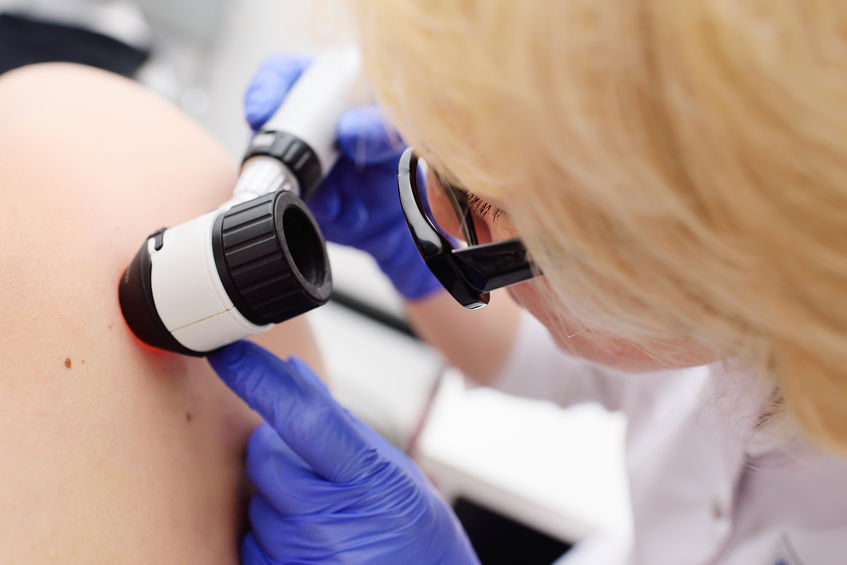Mohs micrographic surgery is considered the gold standard in skin cancer treatment. Developed by Dr. Frederic Mohs in the 1930s, this procedure can have the highest cure rate (up to 99%) of all skin cancer treatments.
If you’ve been recommended to undergo Mohs surgery for skin cancer, you likely have many questions about what to expect from the procedure. Here, we’ll offer information on the typical patient experience before, during, and after the treatment.
Before
Before undergoing Mohs surgery, your doctor will note any existing health conditions and discuss any relevant considerations with you. For example, if you have cardiovascular disease, you may need to stop using blood thinners before the procedure.
Other medications that you may be taking may also need to be stopped at least a week before Mohs surgery. These include nonsteroidal anti-inflammatories, like ibuprofen and aspirin. Your doctor will let you know whether you’ll need to avoid these medications prior to the treatment.
Mohs surgery uses local anesthesia, so you won’t need to fast before the surgery. But it’s worth noting that you shouldn’t make any plans for the day of the surgery, and it may be helpful to have a loved one come with you.
During
During Mohs micrographic surgery, only the cancerous tissue is removed. This is unlike other skin cancer treatments, which require a margin of normal tissue to be removed for assurance. 100% of the excised tissue edges will be examined microscopically. The surgeon examined the tissue under a microscope to precisely determine the location of any remaining cancer cells in the patient.
Since the area is numbed with local anesthesia, you may only feel some pressure during the procedure. Mohs surgery is typically completed in under four hours.
After
After Mohs surgery, patients are generally advised to avoid strenuous activity for one to two days. Additionally, you’ll be advised on how to care for the wound to avoid infection. Some bruising, inflammation, and mild discomfort may appear around the treatment area but should go away promptly.
Dr. Bowman completed an official Fellowship in Mohs Micrographics Surgery and is a fellow of the American College of Mohs Surgery (ACMS). Contact us today to schedule a consultation for skin cancer treatment.

